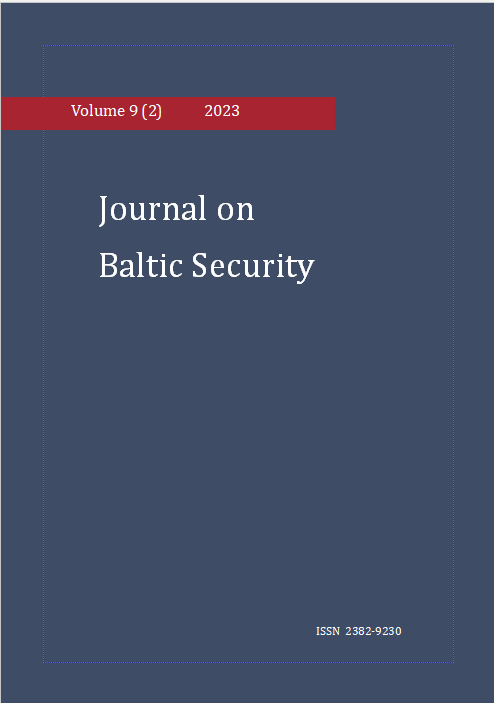Volume 9, Issue 2 (2023), December 2023

Order by:
Pub. online: 20 Dec 2023
Type: Editorial
 Open Access
Open Access
Foreign and Domestic Policy Implications of Latvia’s Reaction to Russia’s Aggression against Ukraine
Pub. online: 30 Nov 2023
Type: Research Article
 Open Access
Open Access
Abstract
Pub. online: 27 Dec 2023
Type: Research Article
 Open Access
Open Access
Abstract
Pub. online: 27 Dec 2023
Type: Research Article
 Open Access
Open Access
Abstract
Pub. online: 29 Dec 2023
Type: Research Article
 Open Access
Open Access
Abstract
Pub. online: 29 Dec 2023
Type: Book Review
 Open Access
Open Access